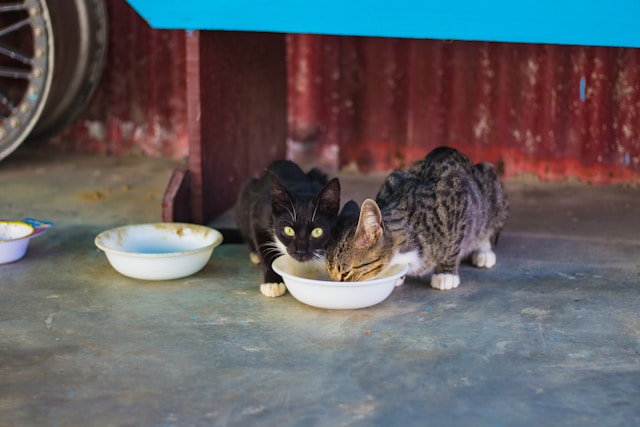As pet owners become more conscious of their cat’s nutrition, many are considering homemade cat food as an alternative to commercial options. While preparing meals at home offers control over ingredients and customization, it also comes with risks. Understanding the benefits, potential dangers, and nutritional needs of cats is essential before making the switch.
Benefits of Homemade Cat Food
Making cat food at home allows you to select high-quality ingredients and avoid artificial additives and preservatives. Some key benefits include:
- Control Over Ingredients: You can tailor meals to your cat’s dietary needs, allergies, or sensitivities.
- No Artificial Additives: Many commercial cat foods contain fillers, by-products, and preservatives that some pet owners prefer to avoid.
- Customization: Homemade meals allow adjustments for a cat’s age, weight, and health conditions.
Essential Nutrients for Cats
Cats are obligate carnivores, meaning they require specific nutrients that must come from animal-based sources. A well-balanced homemade diet should include:
- Protein: Essential for muscle maintenance and overall health; sourced from chicken, turkey, beef, or fish.
- Fats: Provide energy and support skin and coat health; found in animal fats and fish oils.
- Taurine: A crucial amino acid for heart and vision health, primarily found in meat and organ meats like liver and heart.
- Vitamins and Minerals: A proper balance of calcium and phosphorus is necessary for bone health. Supplements may be needed to ensure all dietary requirements are met.
Potential Risks of Homemade Cat Food
Despite its benefits, homemade cat food comes with challenges and risks, including:
- Nutritional Deficiencies: Improperly balanced diets can lead to serious health issues such as heart disease or weakened bones.
- Difficult Formulation: Meeting all of a cat’s nutritional requirements without professional guidance can be challenging.
- Food Safety Concerns: Raw diets pose a risk of bacterial contamination if not handled correctly. Cooked diets may lose essential nutrients if not properly supplemented.
Homemade vs. Commercial Cat Food
When deciding between homemade and commercial cat food, consider the following:
- Nutritional Balance: Many commercial cat foods are formulated to meet feline dietary requirements, whereas homemade diets require careful planning.
- Cost and Convenience: Preparing homemade meals takes time and may be more expensive than buying high-quality commercial cat food.
- Veterinary Recommendations: Most veterinarians suggest consulting a pet nutritionist before switching to a homemade diet to ensure it meets all necessary nutrients.
Safe and Healthy Homemade Cat Food Recipes
If you’re considering homemade meals for your cat, start with vet-approved recipes. Here are some safe ingredients:
- Cooked chicken, turkey, or lean beef
- Organ meats like liver and heart (in moderation)
- Fish (limited due to mercury concerns)
- Scrambled eggs for added protein
Foods to Avoid:
- Onions, garlic, and chives (toxic to cats)
- Dairy products (many cats are lactose intolerant)
- Raw fish (can lead to vitamin B deficiency)
- Grapes, raisins, and chocolate (highly toxic)
Expert Tips for a Balanced Diet
- Use Supplements: Taurine, calcium, and vitamin D are essential for feline health.
- Monitor Your Cat’s Health: Watch for signs of malnutrition, weight loss, or digestive issues.
- Consult a Veterinarian: Before transitioning to homemade cat food, get professional advice to ensure the diet is complete and balanced.
Final Thoughts
While homemade cat food offers many benefits, ensuring proper nutrition is critical. If you choose to prepare meals for your cat, work with a veterinarian or pet nutritionist to create a balanced diet. By prioritizing your cat’s health and dietary needs, you can make informed decisions about their nutrition and well-being.









